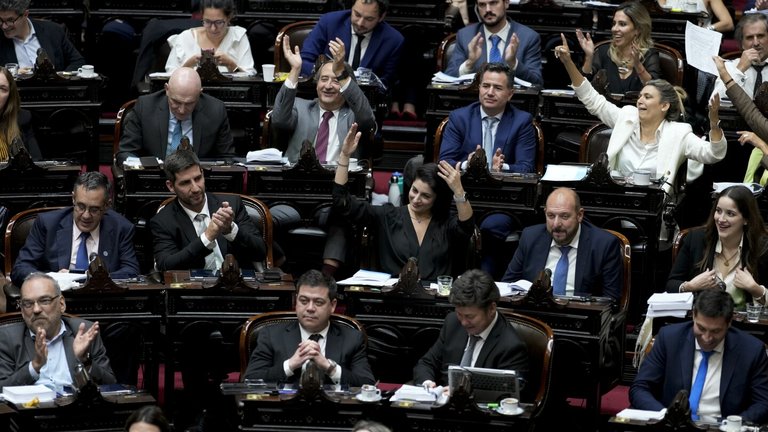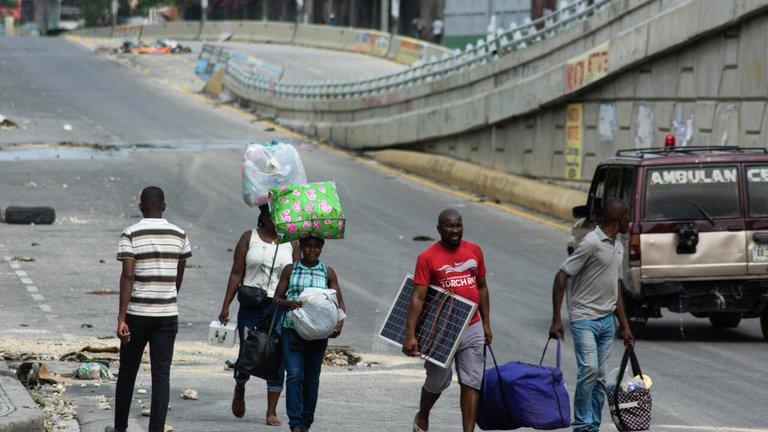
Behind Javier Milei's anti-China rhetoric and alignment with the West, Argentine soybean exporters snatch representative shares of the giant Asian market—the largest importer by far—from their U.S. counterparts. The Albicelestes are taking advantage of several factors, including Chinese importers' fears of a potential return of Donald J. Trump to the White House, which would make the drums of the trade war between Washington and Beijing beat louder. Since 2009, the U.S. has lost 26% of its market share in China, and last year it was overtaken by Brazil as the world top producer.
"This year we have a large supply of soybeans from Argentina, which is going to increase competition," said a Singaporean agent for a China-based company with oilseed processing factories. Both South American agricultural powers are offering very advantageous prices, with more attractive premiums than those set by U.S. suppliers. Argentina is estimated to accumulate 50 million metric tons this year, far exceeding the production of 2023, affected by a fierce drought. Incidentally, this was an argument of the previous administration to seek the IMF's understanding of its inability to meet the lender's goals.
 Source
SourceMilei gets his first legislative victory
It is not yet total, but it is an important step forward. This Tuesday, the ruling party won approval in the Chamber of Deputies—the equivalent of the U.S. House of Representatives—of its bill called "Bases and Starting Points for the Freedom of Argentines," which in a much more ambitious and provocative version had failed to win the necessary consensus last February. Although Milei made important concessions, the document approved by the Argentine representatives contains a critical part of the President's controversial plan, which must overcome a final hurdle in the Senate.
If it does so, the Casa Rosada would have special powers for one year over the energy, economic and financial sectors, once declared an emergency. A key aspect in Milei's planning are the privatizations of certain companies, such as Aerolíneas Argentinas, Agua y Saneamientos Argentinos, and Radio y Televisión Argentina. In labor matters, among other points, the proposal contemplates extending the probationary period for new employees to six months, and condones fines for those employers who decide to recognize unregistered labor relations from before the potential sanction of the law. Another controversial point is a tax incentive foreseen for "large foreign investments".
 Milei's first great political victory after he arrived at the Casa Rosada (source).
Milei's first great political victory after he arrived at the Casa Rosada (source).In another legislative project, also approved by the deputies and focused on tax matters, a regime of laundering or regularization is proposed for undeclared assets—without payment of taxes—, among which cryptocurrencies and cryptoassets are included "regardless of who has been their issuer, who is their holder or where they were deposited, guarded or kept". In this case, the dollar equivalent will be calculated based on "their market value as of the Regularization Date or their acquisition value, whichever is higher". Other measures foreseen are the reimposition of income tax on one category, and an increase of between 300% and 330% in the invoicing ceilings and quotas of the Simplified Regime for Small Taxpayers.
Haiti: new Prime Minister
Fritz Belizaire is the new Haitian prime minister, with the difficult task of taking the reins in a country that was left headless after a bloody onslaught by an ad hoc syndicate of criminal gangs. Along the way, an undetermined number of Haitians have died—among innocent civilians, police, and gang members—, more than 90,000 have left the capital, the former prime minister was stranded abroad, thousands of prisoners fled after electric and effective attacks on two prisons, the country's main airport remains closed, and the socioeconomic crisis has worsened.
Belizaire was invested by the Presidential Council for the Transition in Haiti, a body backed by Caricom and Western powers such as France and the United States. Now, Kenya is expected to activate the multinational force powered by the UN and also Washington—which has committed finances—. In any case, in my opinion, the time between the investiture of the new government and the elections it potentially has to organize—in the distant February 2026—is too long for a broken country, full of social anger, and where sustaining consensus in entities such as the presidential council is a coin toss. In any case, no major violent events have been reported these days.
 Source
SourceAnd this is all for our report today. I have referenced the sources dynamically in the text, and remember you can learn how and where to follow the LATAM trail news by reading my work here. Have a nice day.

